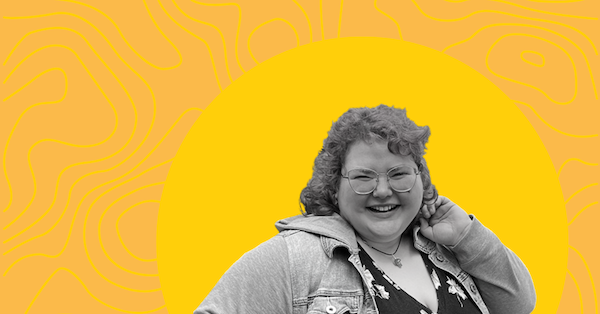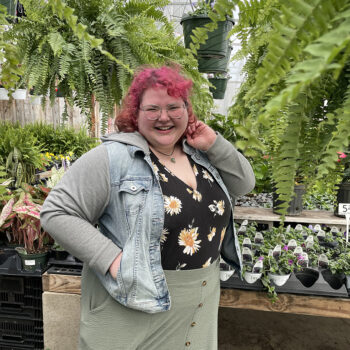We teamed up with Convergence Magazine to ask grassroots organizers from across the country what they learned during the 2022 elections. Here’s what Sam Smith from PA United learned.
What was the most effective message or tactic that the other side used? How did you try to combat it? Were you successful?
After the debate between John Fetterman and Dr. Oz, the right doubled down on using ableist language to describe Fetterman’s performance. As volunteers and staff were prepping for a weekly phonebank, our member, Arin, shared her experience living with an auditory processing disorder — helping our volunteers feel more comfortable talking to voters after the debate.
Here is an excerpt of Arin’s story:
When Erie County United invited volunteers to phone bank for Shapiro and Fetterman, I decided to sign up, but I honestly had no idea how I could participate. I emailed staff to see if there were other ways I could support the movement. I am hard of hearing and talking on the phone can be difficult for me. Not once were my disabilities a hindrance to anyone on the team. In fact, after the Fetterman/Oz debate, my lived experience became even more poignant to our deep canvass program. I was able to share my story at a phone bank event. My abilities, like Fetterman’s, may require a different form of communication at times, but they in no way make me less able to participate in deep, meaningful work when the correct accommodation is in place. Erie County United has become a home for me. I couldn’t be more proud to team up with them in welcoming others to join us too.
What did you think was going to work that didn’t work?
A lot of our focus this election season was on deep canvassing and storytelling. We tried multiple ways to gather stories in video formats that we could share over social media. We recorded a Zoom conversation and edited the clips together to make something cohesive. We had a separate Zoom room on our phone banks for people to volunteer sharing their stories, but our dedicated members were more interested in what they came there to do: make phone calls and connect with voters directly one-on-one. I think next season we will utilize our chapters’ communications teams more.
What did you learn through the midterms that we can use in the next phase of the fight against the MAGA right?
In 2020 and again this year, we used a technique called deep canvassing. Instead of traditional phone banking, we included storytelling and deep listening to get to the root of what matters to voters. In addition to prompting voters to share stories about what matters to them, volunteers also shared their own personal-stakes story to build a relationship with that voter.
PA United fellow, Akiliann Bray, shared her deep canvass phonebanking story which shows the importance of taking time with people and relational building:
Back in early October, I had a powerful conversation with a young man who said he wasn’t a voter. He’d voted only in 2020 because his family pressured him to, but he didn’t connect with any candidates or see the importance in voting. But I deep canvassed him for a solid 20 minutes, I shared my story and asked him to share his. By the end of the call, he said his likelihood of voting moved to a 7 out of 10. He also told me that he wanted to let me know if he actually did end up voting in November. The conversation stuck with me, so I went back and found his number. On Election Day, I called him back and asked if he was voting. He was surprised that I had remembered our conversation. And he said that after our conversation, he’d spoken about the election with his friends and decided he would vote this year. We made a voting plan together on the phone, then he texted me later that day after he left his polling place. At that moment, even if we didn’t win the election, I knew I had made a difference through this work.
PA United partnered with organizations like PA Stands Up, Sunrise Movement, and People’s Action to make sure we were having as many conversations as possible. We targeted our outreach to voters who may feel hopeless about the state of politics or believe their vote doesn’t matter. Connecting with apathetic voters allows us to address the issues that matter to them and their communities as well as helping to connect the dots between what they’re experiencing and the politics behind their issues.
Read more in our View from the Grassroots series:
- Brendan Walsh, Worker Power (Arizona)
- Elianne Farhat, TakeAction MN (Minnesota)
- Daniel Altschuler, Maegan Llerena, and Leo Murrieta, Make the Road Action (New York, Pennsylvania, Nevada)
- Tascha van Auken & Divya Sundaram, NY Working Families Party (New York)
- Carrie Santoro, PA Stands Up (Pennsylvania)
- Jay Malone, Texas Gulf Coast Area Labor Federation (Texas)
- Katey Lauer, West Virginia Can’t Wait (West Virginia)
- Christine Neumann-Ortiz, Voces de la Frontera Action (Wisconsin)
- Grecia Lim, Community Change
- Celina Culver, SURJ

